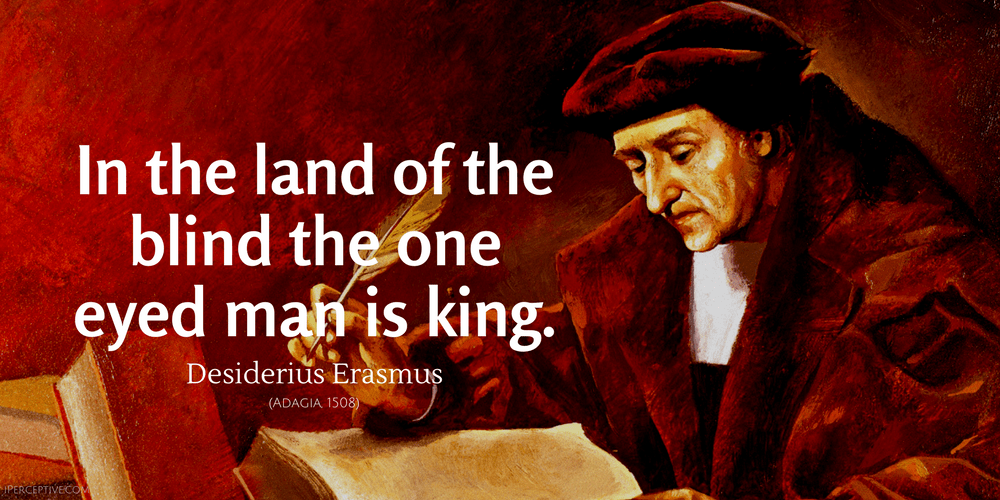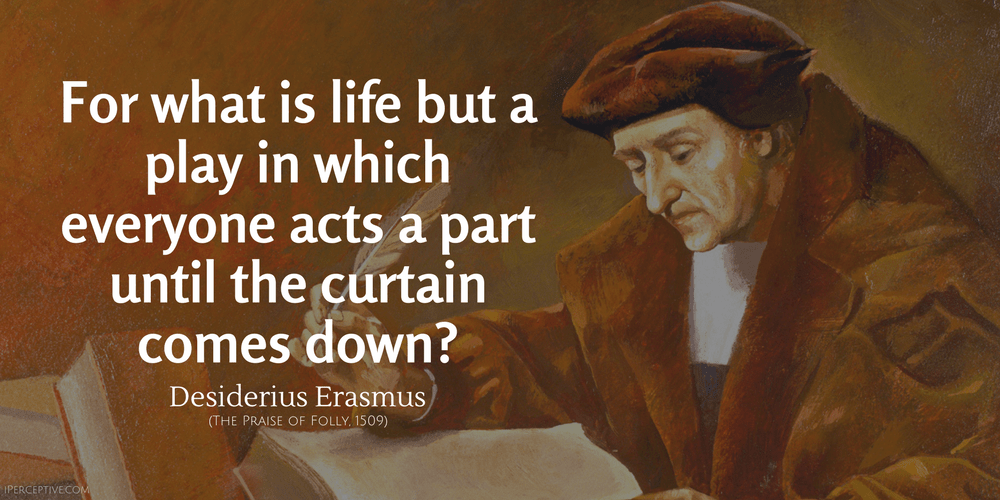Desiderius Erasmus Quotes

Give light, and the darkness will disappear of itself.
In the country of the blind the one eyed man is king.
I am a lover of liberty. I will not and I cannot serve a party.
I am a citizen of the world, known to all and to all a stranger.
The most disadvantageous peace is better than the most just war.
The chief element of happiness is this: to want to be what you are.
There is nothing I congratulate myself on more heartily than on never having joined a sect.

For what is life but a play in which everyone acts a part until the curtain comes down?
You must acquire the best knowledge first, and without delay; it is the height of madness to learn what you will later have to unlearn.
When I get a little money, I buy books; and if any is left, I buy food and clothes. My luggage is my library. My home is where my books are.
I have no patience with those who say that sexual excitement is shameful and that venereal stimuli have their origin not in nature, but in sin. Nothing is so far from the truth.
A constant element of enjoyment must be mingled with our studies, so that we think of learning as a game rather than a form of drudgery, for no activity can be continued for long if it does not to some extent afford pleasure to the participant.

